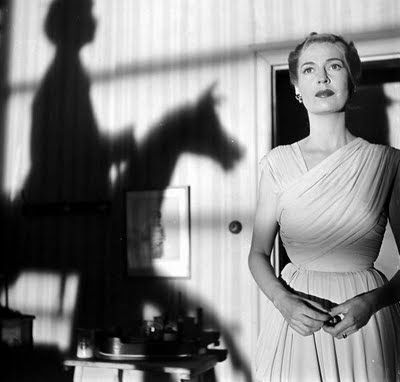A Troubled Childhood: Child Negligence in D.H. Lawrence’s The Rocking Horse Winner

Childhood is arguably the most important developmental stage in an individual’s life. The child is an easily influential person, as numerous factors, such as family, education, friends and their environment, can determine their future adult self and their life in general. However, childhood is not always a happy and peaceful phase; a small incident can affect their unconscious mind and result in intergenerational traumas. D.H. Lawrence addresses the theme of childhood and its hidden aspects in many of his works. The Rocking Horse Winner tackles the dark tale of Paul, a neglected child, and his family’s obsession with money that eventually led to his tragic death.
In The Rocking Horse Winner, Paul is deprived of his youth and enters the materialistic world of adulthood, hoping to win the approval and love of his money-hungry mother. According to Viorica (2008), Lawrence “emphasizes how vanity, carelessness, hypocrisy, and lust can destroy a child’s life, leaving him alone to cope with the abysmal conditions of the modern society”. Paul’s mother believes herself to be unlucky, yet when her son starts making money, she becomes greedy and cares only about gaining more. The absence of a motherly caring figure in the story is the catalyst of Paul’s downfall. She does not care about Paul and chooses materialism over love, money over family, and profit over death. Sidorkin (1997) explains that there’s “an instance of domination here; the mother dominates her son's life, thereby limiting his freedom, and causing pain”.

Additionally, the house itself is a source of worry and anxiety for Paul, as he constantly hears “There must be more money”(Lawrence, 1966). Paul’s room, which should supposedly be a safe haven for him where he gets to play and grow, is intoxicated by the presence of the rocking horse. Turner (1982) argues that “the play area is invaded and challenged by precisely such anxiety - anxiety transferred from the true but intolerable nightmare of lovelessness to the spurious but tolerable nightmare of poverty”. The innocence is annihilated and replaced by the responsibility and guilt of being the breadwinner of the family. The burden of trying to guess the winning horse in the upcoming race drives Paul to insanity and exhaustion. Moreover, the mother’s obsession for money is passed on to Paul, but in a different way. He is obsessed with earning the love and affection of his mother. DeLia (2016) claims that “Paul assumes the parental responsibility of caregiver and provider as he ventures into a world of gambling to satisfy his mother’s greed and to buy him the love he craves”.

Due to his toxic and materialistic family environment, Paul gathers multiple traumas that manifest throughout the story. The father’s warmth and care are non-existent in the story, and his presence overall is extremely limited. This masculine role is occupied by Paul and his uncle Oscar, who initially takes him to the races. Ward (2016) mentions that “the fact that he [the father] is never named suggests his estrangement from the family and sets up an oedipal scenario in which, by becoming the breadwinner, Paul symbolically replaces him”. Paul’s character is a perfect example of Freud’s Oedipus complex, as he tries to take his father’s place in the marital couple. Furthermore, Paul’s ability to predict the winning bets turns him into a narcissist. DeLia (2016) debates that “Paul, too, is a narcissistic personality, but he personifies emotional deprivation, rage and self-hatred”.
Paul is at a tender and sensitive age, but, due to his traumas, his sexual awakening is altered and accelerated. Also, he develops aggressive sexual tendencies and finds satisfaction in the thrusting movement of the rocking horse. According to DeLia (2016), “riding his hobby horse becomes a self-destructive compulsion rather than a vehicle of pleasurable play”. He eventually starts to link his sexual pleasure with monetary gain. Consequently, he associates this ecstasy with Hester, his mother, as he uses the money he gains through the bets to get her gifts. This extensive habit sickens him and he ultimately dies. The mother’s grief is brief and guiltless, showing a lack of attachment and affection for Paul. It almost seems as if she is grieving the loss of her source of income rather than her offspring. This showcases the imbalanced and harmful family environment that pushed Paul to the fence.
To sum up, Lawrence’s The Rocking Horse Winner portrays the impact of the family environment on vulnerable children. The story highlights the importance of motherly love and affection and the presence of a strong father figure. The reader is hit with a wave of dread and sadness at Paul's tragic death and pities his fate. It is a tale of loss of childhood and deterioration for the sake of a capitalist society.
References
DeLia, D. (2016). Bridled Rage: Preoedipal Theory and “The Rocking-Horse Winner”. The DH Lawrence Review, 41(2), 128-144.
Lawrence, D. H. (1966). The rocking-horse winner.Dramatic Publishing.
Sidorkin, A. M. (1997). Carnival and domination: Pedagogies of neither care nor justice. Educational Theory, 47(2), 229-238.
Turner, J. F. (1982). The Perversion of Play in D.H. Lawrence The Rocking Horse Winner. The DH Lawrence Review, 15(3), 249-270.
Viorica, C. (2008) Aged Children in the The Rocking Horse Winner by D.H. Lawrence and Araby by James Joyce. Università Ca' Foscari Venezia
Ward, J. M. (2016). ‘The Rocking-Horse Winner in Five Genres’. In The Forgotten Film Adaptations of DH Lawrence’s Short Stories (pp. 149-225). Brill Rodopi.
Picture References
Anthony Pelissier (1949) Valerie Hobson in The Rocking Horse Winner’s Film Adaptation [Photograph], John Mills Earl St. John.
Jan Juta (1920) Portrait of D.H. Lawrence [Oil Painting], National Portrait Gallery, London Retrieved from https://www.npg.org.uk/collections/search/use-this-image/?mkey=mw03795
WayTOGOZippo (2012) There Must Be More Money [ Pencil Drawing], Deviant Art.




Fascinating. The hobby horse is as both a symbol of childhood and greed, as Paul's quest to win the love of his mother is meaningless.